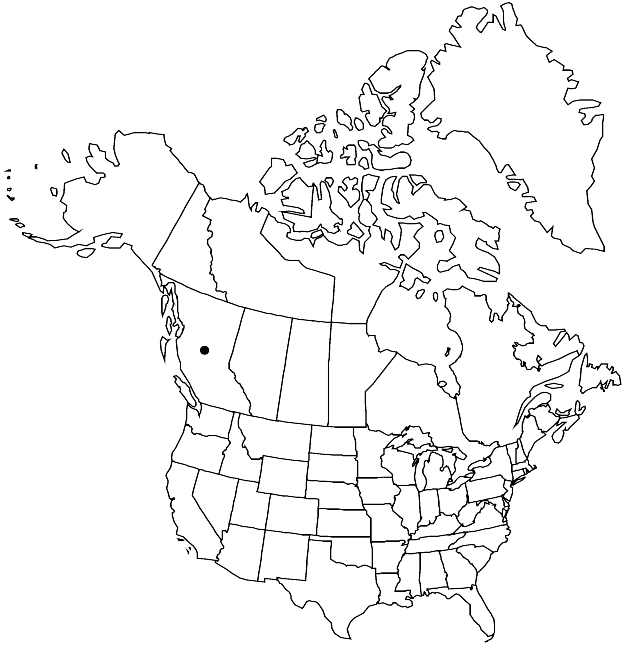Plagiomnium undulatum
Ann. Bot. Fenn. 5: 146. 1968.
Erect stems 1–10 cm, ± dendroid; sterile stems to 10(–15) cm. Leaves dark green or yellow-green, contorted when dry, transversely undulate when moist, oblong-lingulate, lingulate, narrowly ligulate, or rarely narrowly elliptic, 6–10(–14) mm; base long-decurrent; margins toothed to near base, teeth sharp, of 1 (or 2) cells; apex obtuse or rounded, occasionally acute, usually cuspidate, cusp toothed; costa excurrent; medial laminal cells elongate or short-elongate, (12–)15–30(–40) µm, slightly smaller near margins, occasionally in longitudinal rows, rarely in diagonal rows, collenchymatous, walls pitted or not; marginal cells linear, in (2–)3–4 rows. Specialized asexual reproduction by stolonlike stems. Sexual condition dioicous. [Seta 1–4, yellow-green, dark red to blackish with age, 2–4 cm. Capsule pendent, oblong-cylindric, 2.5–3 mm, neck not distinct; operculum rostrate. Spores 30–35 µm].
Phenology: Capsules reportedly mature late spring–early summer.
Habitat: Shaded soil in urban settings
Elevation: low elevations
Distribution

Introduced; B.C., Europe.
Discussion
Plagiomnium undulatum, likely an introduction from Europe, recently has been found in Vancouver and Victoria, British Columbia (S. Joya and T. T. McIntosh 2012), where it is well established at a few sites in shaded habitats over soil, especially along roadsides. The species probably has been overlooked because of superficial similarities to P. insigne, a fairly common urban moss in similar habitats; it may be present in other west coast cities. Sporophytes are not known from the flora area (descriptions of the sporophytes are from A. J. E. Smith 2004). The plants often produce subterranean and leafless stolonlike stems. For differences from the similar 1. P. carolinianum, see the discussion of that species.
Selected References
None.